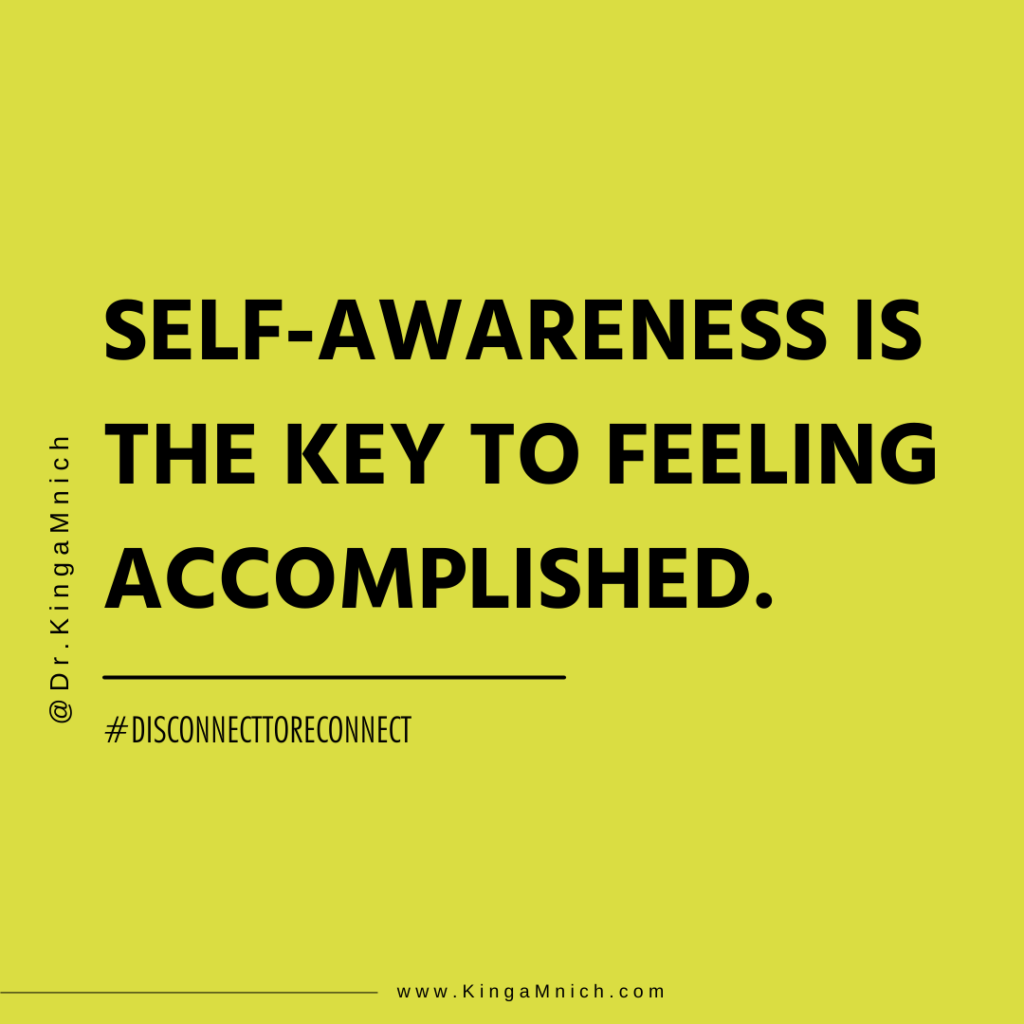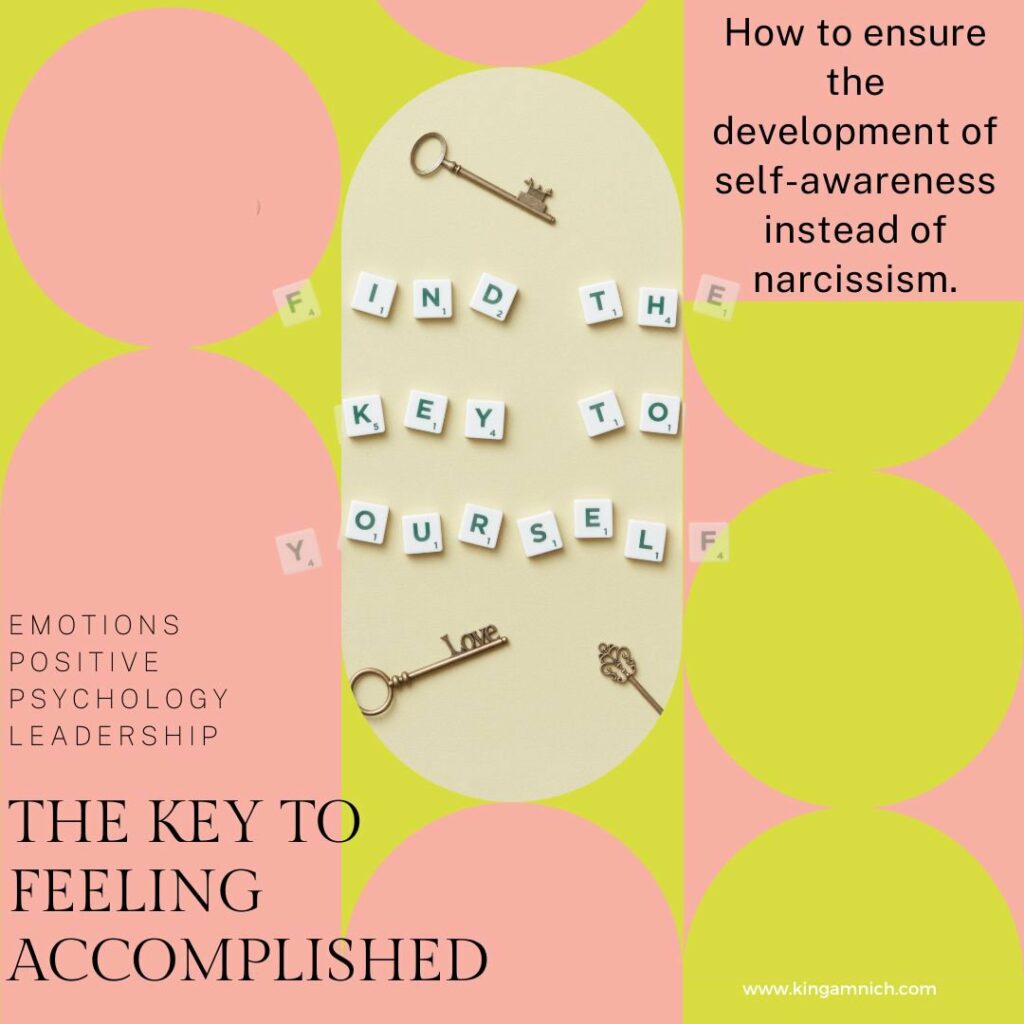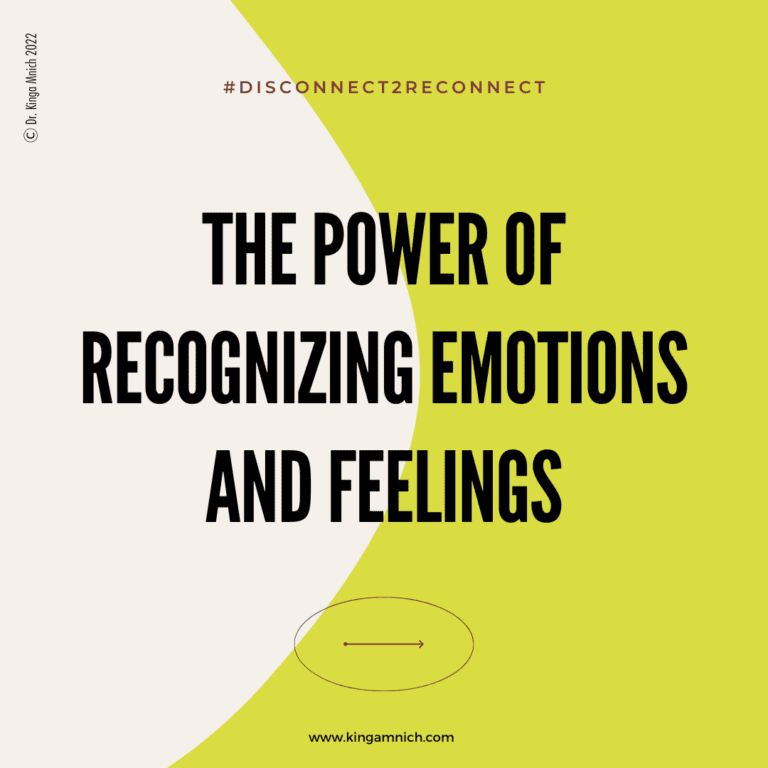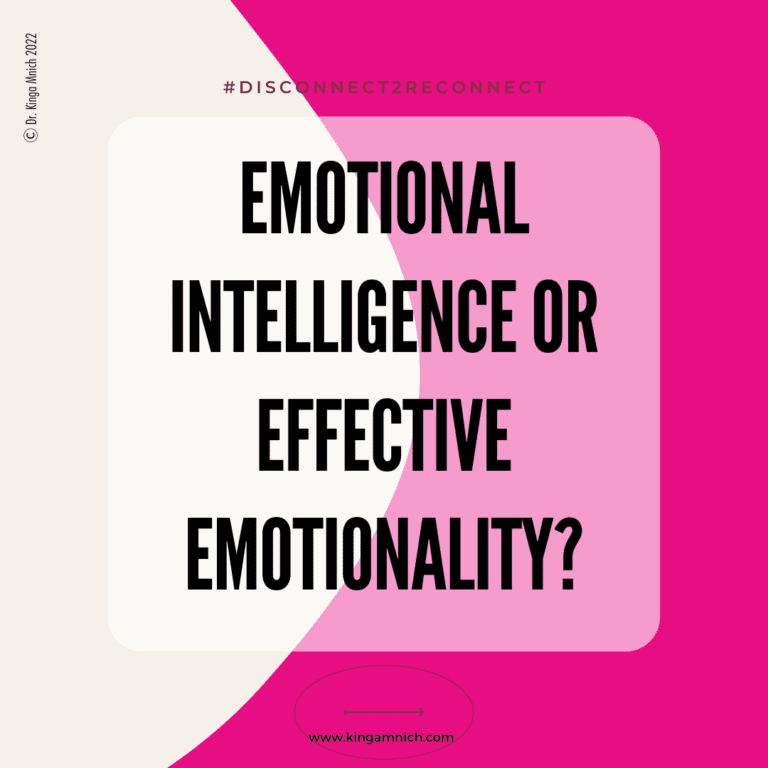Let’s dive into the key to feeling accomplished: How to ensure the development of self-awareness instead of narcissism.
Self-awareness is the first step of self-discovery, self-knowledge, and what is known today as self-growth and the key to feeling accomplished. Lately, though, I wonder how many of the tools that promote self-awareness are also promoting narcissism.

Especially when you scroll through social media, it is hard to overlook the number of posts that talk about how you should focus on yourself and set boundaries to protect yourself. On top of that, it seems as if everyone has experienced trauma and needs to heal from this. This a dangerous statement which, in my opinion, can lead to misunderstandings and create trauma that wasn’t there in the first place.
Don’t get me wrong. I am all about self-knowledge and self-awareness. I believe it is an act of kindness when people go on a self-discovery journey because it genuinely makes them better humans. I wouldn’t be in this space if I didn’t believe in it.
But I also know that happiness and contentment don’t arise from solitude. We need one another because we are social beings. Satisfaction and the true experience of accomplishment don’t arise from focusing solely on your own goals and dreams. Narcissists and egoists are deeply unhappy and ALWAYS unsatisfied. Nothing is enough for them. Contrary to much of the belief, happiness, as research by Martin Seligman and his team has shown, comes from serving others. More precisely, your ability to use your skills to impact other people’s lives in a positive way is what will create a sense of satisfaction.
Let’s go into the nitty-bitty parts of the tightrope we are walking when diving into self- and leadership development and how we can prevent the spread of narcissism.
Table of contents
What is the real difference between self-awareness and narcissism?
The difference between self-awareness and narcissism lies in the purpose of the individual’s focus – on themselves. Self-awareness is about understanding oneself, one’s strengths, weaknesses, and motivations. It involves looking inward to understand better how you can improve yourself and your relationships with others.
Narcissism, on the other hand, is a focus on oneself that is rooted in self-admiration and a need for admiration from others. It is an unhealthy preoccupation with oneself that often leads to behaviors that are manipulative or exploitative of others.
On the other hand, self-awareness requires humility and an openness to being vulnerable. It involves recognizing your flaws and limitations as well as your strengths and potential.
Narcissists lack this kind of humility; they are unable to recognize their own shortcomings and instead focus solely on their own greatness. They also tend to be highly critical of those around them while lacking any real insight into themselves or their behavior.
Ultimately, self-awareness leads to personal growth, while narcissism only feeds an inflated ego and exaggerates division between individuals. Self-awareness allows you to recognize the impact you have on others so you can make changes for the betterment of yourself and your relationships.
In contrast, narcissism perpetuates selfishness and a sense of entitlement, which can lead to broken relationships with those around. It is important to note that the narcissist won’t necessarily care about these broken relationships.
Understanding Self-Awareness.
When looking at the wellness industry that promotes self-growth (aka self-improvement as some refer to it), it is apparent that the narcissistic tendencies of the coach ironically insinuate that there is something wrong with you in the first place but they, the coaches, are the ones who can fix you ????. And then, there are empowerment coaches who claim to be able to actually make you feel empowered).
But self-awareness is the genuine ability to understand how you are impacting and are interconnecting with other people. It is your ability to grasp what is happening within you. That also means that you have a healthy understanding of your emotions and do not unnecessarily react to every impulse you are experiencing.

You can develop interpersonal skills, empathy, and emotional intelligence by cultivating self-awareness. You become more attuned to the needs and perspectives of others, leading to healthier and more fulfilling relationships. Self-awareness also enables personal growth and self-improvement as you gain insights into your own behavior. Which enables you to make conscious efforts to change and develop. It is a genuine insight journey that focuses you outwards. It is the key ingredient for every leader.
Self-awareness in daily life.
At this stage, you might point out that narcissism and self-awareness involve self-reflection and focus on oneself. However, while self-awareness entails a balanced and objective understanding of oneself, narcissism tends to involve an exaggerated and self-aggrandizing view. Narcissists’ self-reflection reinforces their grandiose self-image rather than gaining genuine insight. It is all about the “Look how great I am” vs. “What am I good at, and what do I need help with.” Self-awareness enables you to acknowledge strengths and weaknesses because you are seeking personal growth. On the other hand, narcissists often have an inflated and distorted self-evaluation. Often considering themselves superior to others and craving constant admiration.
The narcissistic element in self-development and trauma patience
According to Ian Stockbridge, “Narcissism can develop as a coping mechanism in response to trauma. People who experience trauma often feel overwhelmed by the emotions and feelings that come with the experience and may develop a sense of detachment from their emotions as a way to cope”. Further, Stockbridge explains that this detachment is what leads to a lack of empathy with others which is a key characteristic of narcissism.
There is a delicate balance that needs to be recognized here as too much media focus on mental health can also, in itself, foster the development of trauma and, in consequence, the development of narcissism. This happens when an individual focuses only on posts which encourage self-focus without compassion and without bringing the post into the context of us all being interconnected.
Narcissists, no matter how much they seem in love with themselves, have a constant need for praise or admiration. They need to feel validated by others and often brag or exaggerate their accomplishments for recognition. They also like to feel appreciated to boost their ego. This behavior is extrinsically centered, as the narcissist is focused on getting external reaction, compared to internally focused self-awareness which is centered around improving relationships and living with intention.
It is the difference between “How can I improve myself to serve others” and “How can I make others see me as special”?
Summary:
Like everything in the world, self-development is a practice of balance. Too much of it leads indeed to the development of narcissistic tendencies, and in a world of social media, it is our duty to use our ability to be self-aware as to how we are impacting our environment. Remember, there is no “I” without “Us” that’s why self-awareness isn’t just about how to create a better life for yourself. Creating a better life for yourself inherently means creating better relationships and, thus, playing far more of a positive role.
Resources:
Belonging Is Stronger Than Facts’: The Age of Misinformation
Wellness Culture: Is It Only Making Us More Sick?
Self-awareness can improve relationships. Here are tips to build it.
Studies:
A 2022 study by Huang, Xinyao, and Peng Fan has shown that the increased use of social media in the workplace fuels upward social comparison between employees.












